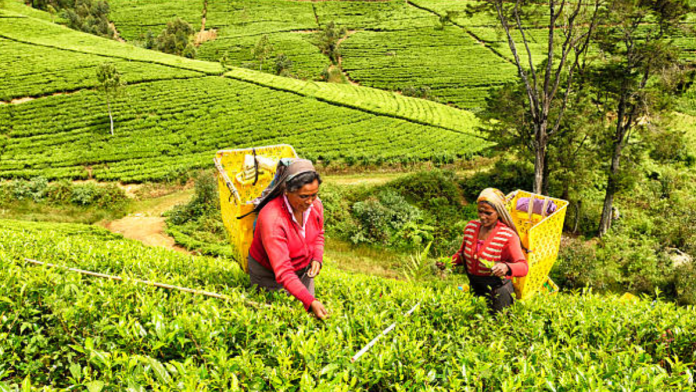News in brief:
– Women farmers in Sri Lanka, lured by promises of quick cash, are trapped in a vicious cycle of debt due to exploitative microfinance loans.
– Climate change-induced weather extremes, such as floods and droughts, exacerbate their struggles, making it difficult to repay loans with high interest rates.
In the heart of Sri Lanka’s agricultural hub, women farmers face an alarming cycle of economic violence, caught in the clutches of exploitative microfinance loans. Severe weather patterns, aggravated by climate change, have left these farmers struggling to repay loans, pushing them into a devastating debt trap.
Tens of thousands of women, enticed by promises of fast cash without collateral, find themselves ensnared by large finance companies. Unpredictable weather, including floods and droughts, wreaks havoc on paddy farms, crippling the farmers’ ability to meet weekly loan repayments with exorbitant interest rates.
Loan collectors employ aggressive tactics, refusing to leave homes until installments are paid. In an interview with Dimuthu Attanayake, an independent journalist from Sri Lanka, one such farmer, Shiroma Sandamali recounts harrowing experiences of hiding from collectors, leading to emotional distress and, at times, contemplation of suicide.
Lack of financial literacy among rural women also worsens the situation, with borrowers often unaware of the exploitative terms.

Government intervention and challenges
The increase in climate-induced hazards in Sri Lanka over the past decade has led to a 22-fold rise in challenges for farmers, a news report says. Extreme weather conditions, including heatwaves and droughts, result in fewer harvests, compounding the financial burden on already indebted farmers.
Despite government initiatives, such as debt write-offs and lending rate caps, challenges persist. Microfinance companies, initially introduced for poverty alleviation, have become profit-driven entities, further straining the livelihoods of vulnerable women farmers.
As Sri Lanka works on new laws to regulate microfinance, concerns arise over the exclusion of large companies from the draft bill. Questions directed at the Central Bank of Sri Lanka prompt assurances of action against exploitative practices, yet women like Sandamali continue to face legal threats and intimidation.



